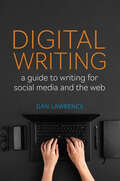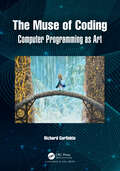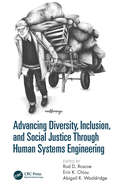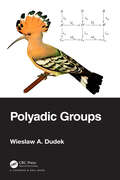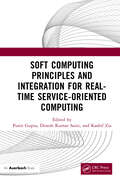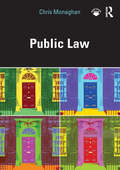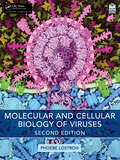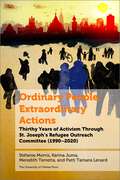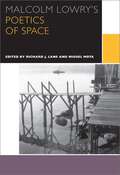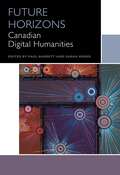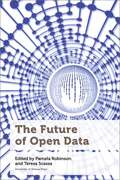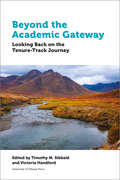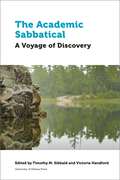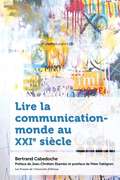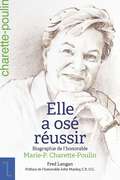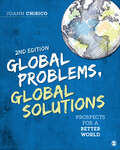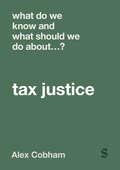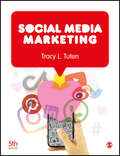- Table View
- List View
Digital Writing: A Guide to Writing for Social Media and the Web
by Dan LawrenceThis concise guidebook offers a rhetorical framework for writing and analyzing content for social media and the web. In the age of disinformation and hyper-targeted digital advertising, writers and teachers of writing must be prepared to delve into the digital world with a critical and strategic perspective. This book offers an interdisciplinary approach to writing scenarios, with insights from classical and contemporary rhetoric, the philosophy of technology, and digital media theory. Special emphases are also placed on preparing for writing, marketing, and communications careers in the digital space, and on ethical issues related to digital and social media.
The Muse of Coding: Computer Programming as Art
by Richard GarfinkleThis book gives students and experienced programmers a way to see coding as an art and themselves as artists whose personal views, experiences, and ways of thinking can make their programs better for themselves and their users.This book shows in a good-humored and sympathetic way how the artistic and practical sides of programming are the same, delving into the methods of coding, the history of art, and the ways in which artists and audiences interact and benefit each other.Not confined to a single language or style of coding, this book provides a widely applicable framework for people to learn what languages and styles work best for them at present and as the field evolves. It can be used as a classroom text or for personal study and enrichment.
Advancing Diversity, Inclusion, and Social Justice Through Human Systems Engineering
by Rod D. Roscoe Erin K. Chiou Abigail R. WooldridgeWinner of the "Outstanding Academic Title" recognition by Choice for the 2020 OAT Awards. The Choice OAT Award represents the highest caliber of scholarly titles that have been reviewed by Choice and conveys the extraordinary recognition of the academic community.Advancing Diversity, Inclusion, and Social Justice through Human Systems Engineering highlights how scholars and practitioners of HSE (inclusively defined to span many fields) can apply their theories and methods to understand and support healthy communities, include and empower diverse populations, and inspire strategies for a more inclusive future. This volume brings together experts from human factors, ergonomics, psychology, human-computer interaction, and more to demonstrate how these fields can be applied to societal challenges and solutions. Through a blend of research reports, literature reviews, and personal narratives, this volume explores these issues from the individual to the global scale, across diverse populations, and across multiple continents. Features Draws upon human factors and ergonomics theories and methods to evaluate, understand, and confront systemic threats to inclusion and social justice Offers actionable methodologies, strategies, and recommendations for conducting human-centered research, design, and training with marginalized or vulnerable populations Offers a venue for reporting and reconsidering the work of human factors and ergonomics from the perspectives of diversity, inclusion, and social justice
Polyadic Groups
by Wieslaw A. DudekThis book provides a general, unified approach to the theory of polyadic groups, their normal subgroups and matrix representations.The author focuses on those properties of polyadic groups which are not present in the binary case. These properties indicate a strong relationship between polyadic groups and various group-like algebras, as well as ternary Hopf algebras and n-Lie algebras that are widely used in theoretical physics.The relationships of polyadic groups with special types of binary groups, called covering groups and binary retracts, are described. These relationships allow the study of polyadic groups using these binary groups and their automorphisms.The book also describes the affine geometry induced by polyadic groups and fuzzy subsets defined on polyadic groups. Finally, we discuss the categories of polyadic groups and the relationships between the different varieties of polyadic groups. In many cases, we give elegant new proofs of known theorems. We also give many interesting examples and applications.The book contains many little-known results from articles previously published in hard-to-reach Russian, Ukrainian and Macedonian journals. These articles are not in English.
Soft Computing Principles and Integration for Real-Time Service-Oriented Computing
by Punit Gupta Dinesh Kumar Saini Kashif ZiaIn recent years, soft computing techniques have emerged as a successful tool to understand and analyze the collective behavior of service- oriented computing software. Algorithms and mechanisms of self- organization of complex natural systems have been used to solve problems, particularly in complex systems, which are adaptive, ever- evolving, and distributed in nature across the globe. What fits more perfectly into this scenario other than the rapidly developing era of Fog, IoT, and Edge computing environment? Service- oriented computing can be enhanced with soft computing techniques embedded inside the Cloud, Fog, and IoT systems.Soft Computing Principles and Integration for Real-Time Service-Oriented Computing explores soft computing techniques that have wide application in interdisciplinary areas. These soft computing techniques provide an optimal solution to the optimization problem using single or multiple objectives.The book focuses on basic design principles and analysis of soft computing techniques. It discusses how soft computing techniques can be used to improve quality-of-service in serviceoriented architectures. The book also covers applications and integration of soft computing techniques with a service- oriented computing paradigm. Highlights of the book include: A general introduction to soft computing An extensive literature study of soft computing techniques and emerging trends Soft computing techniques based on the principles of artificial intelligence, fuzzy logic, and neural networks The implementation of SOC with a focus on service composition and orchestration, quality of service (QoS) considerations, security and privacy concerns, governance challenges, and the integration of legacy systems The applications of soft computing in adaptive service composition, intelligent service recommendation, fault detection and diagnosis, SLA management, and security Such principles underlying SOC as loose coupling, reusability, interoperability, and abstraction An IoT based framework for real time data collection and analysis using soft computing
Public Law
by Chris MonaghanPublic Law guides students through all the essential components of the Public Law module, in a user-friendly structure that is ideal for visual learners. Written by an experienced teacher of Public Law, the book takes an accessible and engaging approach to often complex areas of law, politics and the constitution. Incorporating recent developments, academic debate and commentary, the book introduces students to all the key concepts of this core subject. The text is grounded in context, explaining how Public Law operates in practice, and it thoroughly covers the spectrum of Constitutional Law, Human Rights and Administrative Law.Integrated pedagogic features ease navigation of the text and reinforce key points. These include Public Law in Context, Recent Developments, Public Law in Practice, Practical Application and Academic Debate, and Public Law is also supported by online Multiple Choice Questions. Public Law is essential reading for modules on public law and constitutional and administrative law on LLB degrees and conversion courses.
Molecular and Cellular Biology of Viruses
by Phoebe LostrohThis fully revised second edition of Molecular and Cellular Biology of Viruses leads students on an exploration of viruses by supporting engaging and interactive learning. All the major classes of viruses are covered, with separate chapters for their replication and expression strategies, and chapters for mechanisms such as attachment that are independent of the virus genome type. Specific cases drawn from primary literature foster student engagement. End-of-chapter questions focus on analysis and interpretation with answers being given at the back of the book. Examples come from the most-studied and medically important viruses such as SARS-CoV-2, HIV, and influenza. Plant viruses and bacteriophages are also included. There are chapters on the overall effect of viral infection on the host cell. Coverage of the immune system is focused on the interplay between host defenses and viruses, with a separate chapter on medical applications such as antiviral drugs and vaccine development. The final chapter is on virus diversity and evolution, incorporating contemporary insights from metagenomic research. The second edition has updated suggestions for primary literature to discuss along with each chapter. New to this second edition, a supplementary chapter, freely available for download, looks at how virology intersects with public health, and uses the COVID-19 pandemic as a notable example.Key Features Readable but rigorous coverage of the molecular and cellular biology of viruses Molecular mechanisms of all major groups, including plant viruses and bacteriophages, illustrated by example Host-pathogen interactions at the cellular and molecular level emphasized throughout Medical implications and consequences included Quality illustrations available to instructors New to this second edition, interactive quiz questions hosted online
Ordinary People, Extraordinary Actions: Refuge Through Activism at Ottawa’s St. Joe’s Parish (Politics and Public Policy)
by Stéfanie Morris Karina Juma Meredith Terretta Patti Tamara LenardWhat motivates “ordinary people” to support refugees emotionally and financially?This is a timely question considering the number of displaced people in today’s world is at an all-time high. To help counter this crisis, it is imperative for the Canadian government to determine which policies encourage volunteers to welcome asylum seekers, and which ones must be reviewed.Ordinary People, Extraordinary Actions relates the story of the St. Joseph’s Parish Refugee Outreach Committee over its thirty years in action, revealing how seemingly small decisions and actions have led to significant changes in policies and in people’s lives—and how they can do so again in the future.By helping readers—young and old, secular and faith-oriented—understand what drives individuals and communities to welcome refugees with open hearts and open arms, the authors hope to inspire people across Canada and beyond its borders to strengthen our collective willingness and ability to offer refuge as a lifesaving protection for those who need it.
Malcolm Lowry's Poetics of Space (Canadian Literature Collection)
by Richard J. Lane and Miguel MotaThis collection focuses on Lowry’s spatial dynamics, from the psychogeography of the Letterist and the Situationist International, through musical forms (especially jazz), cinema, photography, and spatial poetic writing, to the spaces of exception, bio-politics, and the creaturely. It presents previously unpublished essays by both established and new international Lowry scholars, as well as innovative ways of conceiving of his aesthetic practice. In each of the book’s three sections, critics engage in the notion of Lowry as a multi-media artist who influenced and was deeply influenced by a broad range of modernist and early postmodernist aesthetic practices. Acutely aware of and engaged in the world of film, sensitive to the role of the graphical surface in advertising and propaganda, and deeply immersed in a vast range of literary traditions and the avant-garde, Lowry worked within an intertextual space that is also a mediascape, one which tends to transgress, or at least exceed, neatly controlled borders or aesthetic boundaries. These new approaches to Lowry’s life and work, which make use of new and recent theoretical perspectives, will encourage fresh debate around Lowry’s writing. Publié en anglais.
Future Horizons: Canadian Digital Humanities (Canadian Literature Collection)
by Dean Irvine Kiera Obbard Sandra Djwa Roopika Risam Andrea Zeffiro Deanna Fong M Ryan Fitzpatrick Gregory Betts M Eric Schmaltz Dani Spinosa Klara Du Plessis M David Gaertner M Mark V. Campbell M Jon Saklofske Julia Polyck-O’Neill Kim Martin Rashmeet Kaur Pascale Dangoisse Constance Crompton Michelle Schwartz Katherine McLeod Graham H. Jensen M Allan Cho Sarah Zhang Kendra Cowley Susan Brown Asen IvanovAu fil des vingt et quelques chapitres que compte cet ouvrage, les auteurs explorent le passé, le présent et l’avenir de la recherche, de l’enseignement et de l’expérimentation en sciences humaines numériques au Canada. Ce recueil, qui rassemble les travaux de chercheuses et de chercheurs établis et émergents, présente des initiatives contemporaines dans le domaine des sciences humaines numériques. Celles-ci sont conjuguées à un réexamen de l’héritage légué par ce domaine jusqu’à ce jour et à des discussions sur son potentiel. Future Horizons jette aussi un regard historique sur des projets numériques d’envergure, quoique largement méconnus, qui ont été réalisés au Canada. Future Horizons fait plonger le lecteur dans des projets qui mettent à contribution une vaste gamme d’approches — des jeux numériques aux laboratoires ouverts, des archives sonores à la poésie numérique, des arts visuels à l’analyse textuelle numérique — et qui puisent dans des matériaux canadiens tant historiques que contemporains. Dans leurs essais, les auteurs font voir comment une telle diversité d’approches remet en cause la connaissance en permettant aux chercheurs de poser de nouvelles questions.Ce recueil remet en question l’idée selon laquelle il n’existerait qu’une seule définition des sciences humaines numériques ou une seule identité collective nationale. En observant les interactions du numérique avec la race, l’autochtonie, le genre et la sexualité — sans oublier l’histoire, la poésie et le concept de nation —, Future Horizons propose une vue élargie du travail à l’intersection des sciences humaines numériques et des sciences humaines traditionnelles dans le Canada d’aujourd’hui. Ce livre est publié en anglais.Formats disponibles : couverture souple, PDF accessible et ePub accessible.
The Future of Open Data (Law, Technology, and Media)
by Michael Geist Tenille Brown Haewon Chung Sarah Greene Peter Johnson Elizabeth Judge Tracey Lauriault Ian Parfitt Fernando Perini Claus Rinner Renee Sieber Christine Varga Lisa Ward MatherThe Future of Open Data est issu d’un projet de recherche en partenariat subventionné pendant plusieurs années par le Conseil de recherches en sciences humaines (CRSH) qui vise à explorer les données gouvernementales géospatiales ouvertes dans une perspective interdisciplinaire. Les chercheurs associés à cette subvention ont adopté une perspective critique en sciences sociales basée sur l’impératif voulant que la recherche devrait être pertinente à la fois pour le gouvernement et pour les partenaires de la société civile œuvrant dans ce domaine.Cet ouvrage s’appuie sur les connaissances développées durant la période de validité de la subvention et soulève la question : « Quel est l’avenir des données ouvertes ? » Les collaborateurs partagent leurs idées à propos de l’avenir des données ouvertes à la suite d’observations et de recherches menées pendant cinq ans sur la communauté des données ouvertes canadiennes selon une perspective critique de ce qui pourrait et ce qui devrait arriver dans un contexte où évoluent les efforts concernant les données ouvertes.Chaque chapitre de ce livre aborde une diversité d’enjeux tout en s’appuyant sur des perspectives disciplinaires ou interdisciplinaires. Le premier chapitre retrace les origines des données ouvertes au Canada et la manière dont la situation a évolué jusqu’à aujourd’hui, en tenant compte du croisement entre le mouvement de souveraineté des données autochtones et les données ouvertes. Quelques chapitres se penchent sur certains dangers et sur les possibilités des données ouvertes, à leurs limites et même aux responsabilités qui s’y rattachent. Une autre série de chapitres examine les horizons appropriés pour les données ouvertes, incluant les données ouvertes dans le Sud global, les priorités des gouvernements locaux en matière de données et le contexte émergent des données ouvertes dans les milieux ruraux.
Comment traiter les « soldats d’Hitler » ?: Les relations interalliées et la détention des prisonniers de guerre allemands (1939-1945) (Études canadiennes)
by Jean-Michel TurcotteFar from being restricted to barbed wire camps or within the borders of a single nation, the detention of German soldiers remains a little-known part of history in the specific context of the triangular relationships between Ottawa, Washington, D.C., and London.It is from this perspective that the book Comment traiter les « soldats d’Hitler ? » (How to Treat “Hitler’s Soldiers”?) explores the political dynamics between Canadian, American, and British authorities regarding the treatment of German prisoners of war. Throughout the Second World War, these Allied forces detained close to 600,000 of “Hitler’s soldiers” on their respective territories. While managed by each state, these incarceration operations raise several issues involving interallied cooperation.This detailed analysis compares the captivity regimes developed by each government according to their national prerogatives and looks at important differences in how the three North Atlantic Allies dealt with enemy soldiers. Turcotte takes stock of the countries’ common and respective policies, which stemmed from participation in joint projects, regular meetings looking to better coordinate their actions, consultations and correspondence between them, as well as discussions on problems tied to the detention of prisoners of war and the solutions put forth. It also presents each state’s position on the 1929 Geneva Convention, the forced labour of detainees, and the denazification program. The conditions of captivity for German soldiers were therefore the result of mutual influence between the three main detaining powers of the Western Front, which was shaped by each of their experience. Following this argument, the author brings to light the key role Canada played within the Allied forces at the time. Published in French.
Beyond the Academic Gateway: Looking back on the Tenure-Track Journey (Education)
by Cecile Badenhorst Lee Anne Block Joan Chambers Cam Cobb Frank Deer Lyle Hamm Lloyd Kornelsen Onowa McIvor Heather McLeod Peter Milley Sylvia Moore Greg Ogilvie Sharon Penney Sarah Pickett Gregory Rickwood Maria Del Rodriguez Margarida Romero Patricia Rosborough Manu Sharma Kathy Snow Gabrielle YoungTenure is a pivotal decision for the academy. If it is earned, it provides security and permanence, creating further academic freedom to pursue research and interests important to the institution and to society. If it is not earned, then the peer review process provides clarification for why it has not been earned. This book brings together lived experiences of academics around the time of the tenure decision. While the book is stand-alone, it has the same collection of authors who wrote about their tenure-track experiences in The Academic Gateway, making the pair of books a remarkable longitudinal collection. The authors explore the complex relationship between academics, the academy as an ideal, and universities as an enactment of that ideal. Personal growth is evident and shows diversity of experience, as the maturing relationships with the role and workplace unfurl. Where tenure track is a very personal journey, the period around tenure is necessarily a form of engagement with peers. Yet it has challenges, particularly in a milieu where academic freedom is being nurtured. Individual authors negotiate their choices between their personal objectives and institutional mandates and policies. Simultaneously, after years in the tenure-track, they continue to be evolving as academics, whether through personal growth or by seeking changes in the academy itself. Published in English.
The Academic Sabbatical: A Voyage of Discovery (Education)
by Anahit Armenakyan Lee Anne Block Merridee Bujaki Antoinette Doyle Susan E. Elliott-Johns Professor Victoria Handford Jacqueline Hesson Lloyd Kornelsen Xuemei Li Pei-Ying Lin Heather McLeod Sharon C. Penney Maria Del France Donald Scott Shelleyann Scott Timothy Sibbald Gabriel Young Cecile BadenhorstThe Academic Sabbatical: A Voyage of Discovery is a collection of narratives that reveals how important sabbaticals are to faculty and, by extension, to higher education. This in-depth look at the diverse experiences and perspectives provides a wealth of evidence that sabbaticals are instrumental in increasing productivity in terms of research and knowledge dissemination.These periods of self-directed and focused work enable scholars to restore their academic energies, leading to enhanced engagement with their programs, graduate students, and intellectual exchange among peers. Although not without challenges and tensions, sabbaticals help academics build stronger and deeper connections.While this book stands alone in promoting the richness and potential of the sabbatical as a structural feature of the academy, it is a great follow-up to The Academic Gateway and Beyond the Academic Gateway, which respectively discuss the tenure-track and tenure experience.This book is the third in the Lives in the Canadian Academic Landscape triptych.
Lire la communication-monde au XXIe siècle (Hors collection)
by Professeur Bertrand CabedocheHallowed in course titles and leveraged in the nomenclature of international organizations, yet unfit to bring any clarification or synthesis that actually provides structure, the objectifying expression communication internationale has no scientific value, except as a research object. Yet, the expression bears meanings that must urgently be put into perspective, since it lends itself to discursive construct which often varies greatly according to the crossed—and often masked—interests of an ever-increasing number of actors on a global scale and based on the political-cultural fields where these tactical productions are disseminated. The first option for an enlightening approach is through the thread of an academically recognized discipline. More specifically, the introduction of information-communication science in France in 1978 opens up a corpus of theoretical approaches and epistemological questionings that are already meaningful, although they are limited to a single country. Taking notice of the multiple and sometimes competing scientific productions and collaborations that extend this time to whole continents, the crossed questioning reveals epistemological, theoretical, conceptual, and methodological inflections that support a provisional state of the research. Then, the concept of communication-monde, sketched by Armand Mattelart and elevated to the rank of structuring concept in the book, enables us to read the global stakes of communication as we step into the third millennium and acts as a decentring force against the permanent risks of ethnocentric thinking.
Elle a osé réussir: Biographie de l'honorable Marie-P. Charette-Poulin (Biographies et mémoires #13)
by Fred LanganElle a osé réussir (in English, She Dared to Succeed), delves into the life of a woman who, for more than 30 years, broke multiple glass ceilings in the Canadian media and political worlds. Well-known in the broadcasting industry, she was propelled to the political forefront following her appointment to the Senate of Canada (1995) and her election as President of the Liberal Party of Canada (2006). She had to overcome many challenges throughout her career: sexism, prejudice against single mothers and career women, wage disparities, and harassment in the workplace. Above all, she experienced the opprobrium reserved for Senate members—all of whom were exonerated—targeted as part of the Senate expenses scandal (2012-2016). In this book, she bears witness to the human cost of this chapter of Canadian history. This biography, with a foreword by the Hon. John Manley, is the fruit of impressive research by the author, who not only interviewed Madame Charette-Poulin at length, but also conducted 67 interviews, including with prominent Canadians such as Right Honourable Jean Chrétien and Brian Mulroney, the Honourable Sheila Copps, Sharon Carstairs, Mike Duffy, Hugh Segal, Céline Hervieux-Payette, Vivienne Poy, Linda Frum, Sheila Fraser, as well as judges Robert Desmarais, and Robert Del Frate. She dared to succeed... despite it all.Also available in English (She Dared To Succeed)Available in hardcover, trade paperback, and accessible PDF et ePUB formats.
myPerspectives®: Grade 9, Volume Two
by Ernest Morrell Elfrieda Hiebert Kelly GallagherNIMAC-sourced textbook
myPerspectives®: Grade 9, Volume One
by Ernest Morrell Elfrieda Hiebert Kelly GallagherNIMAC-sourced textbook
And Then the Rain Came
by Evelyn W. MinshullA compelling saga of the pagan world before the great flood and how four remarkable women choose to follow the one true God no matter what the cost. It is a dark time for the earth. Faith has degenerated into pagan worship, and God has found only one man, Noah, who is righteous. He and his family still worship the true God, Yaweh. Ridiculed for their faith in a God who cannot be touched or seen, the women of the ark stand with Noah as the time of reckoning approaches. In the last days before the flood, the women of Noah's family come to know themselves and their God as never before. As they struggle with their daily lives and their very human emotions, these four women face personal doubts as well as fears for the loved ones who must be left behind. And as they make final preparations to enter Noah’s ark and leave the only world they know, each must find her own refuge in the unfailing love of Yahweh. As the doors of the ark close, they realize there’s no turning back...they are about to embark on the most extraordinary journey any woman has ever made.
Global Problems, Global Solutions: Prospects for a Better World
by JoAnn A. ChiricoGlobal Problems, Global Solutions: Prospects for a Better World approaches social problems from a global perspective with an emphasis on using one’s sociological imagination. Perfect for instructors who involve students in research, this text connects problems borne by individuals to regional, global and historical forces, and stresses the importance of evidence in forming opinions and policies addressing social issues. The Second Edition explores three broad themes--nourishing human capital, restoring civility, and sustaining natural and manufactured environments--as it examines the causes and consequences of a range of problems related to economic inequality, discrimination and persecution, war and violence, food production, population flows, health and longevity, the environment, and other issues that we encounter in our lives. The book concludes with a chapter on politics and government, underscoring the need for good governance at all levels–and cooperation among many layers of government–to build a better world.
Global Problems, Global Solutions: Prospects for a Better World
by JoAnn A. ChiricoGlobal Problems, Global Solutions: Prospects for a Better World approaches social problems from a global perspective with an emphasis on using one’s sociological imagination. Perfect for instructors who involve students in research, this text connects problems borne by individuals to regional, global and historical forces, and stresses the importance of evidence in forming opinions and policies addressing social issues. The Second Edition explores three broad themes--nourishing human capital, restoring civility, and sustaining natural and manufactured environments--as it examines the causes and consequences of a range of problems related to economic inequality, discrimination and persecution, war and violence, food production, population flows, health and longevity, the environment, and other issues that we encounter in our lives. The book concludes with a chapter on politics and government, underscoring the need for good governance at all levels–and cooperation among many layers of government–to build a better world.
What Do We Know and What Should We Do About Tax Justice? (What Do We Know and What Should We Do About:)
by Alex CobhamThis book lays out what we know about the scale, history and impacts of tax abuse. From profit-shifting by multinational corporations to the exploitation of offshore tax havens. It sheds light on the people and organisations that enable tax abuse, and the stark social inequalities it creates. Crucially, it also explores what we can do about it. What are the practical realities of challenging the threats of tax injustice and of holding abusers accountable? What are the policies and institutional shifts we need to see and fight for? It is estimated that cross-border tax abuse accounts for around half a trillion dollars of lost revenue around the world each year. This is important. Alex Cobham shows us that tax is more than just business regulation or economic policy. It is a powerful tool for creating a fair and just society. It is our social superpower. Alex Cobham is an economist and chief executive of Tax Justice Network. The ‘What Do We Know and What Should We Do About...?′ series offers readers short, up-to-date overviews of key issues often misrepresented, simplified or misunderstood in modern society and the media. Each book is written by a leading social scientist with an established reputation in the relevant subject area. "Short, sharp and compelling." - Alex Preston, The Observer "If you want to learn a lot about what matters most, in as short a time as possible, this is the series for you." - Danny Dorling, Halford Mackinder Professor of Geography, University of Oxford
Social Media Marketing
by Tracy L. TutenThe original, bestselling, and award-winning textbook on social media marketing, featuring all the essential topics, concepts, research, and practical application for study and career success. Now thoroughly updated in this fifth edition to reflect the latest developments in social media marketing research and practice, and with new case studies and examples, including brands such as Apple, Cadbury, LUSH Cosmetics and Zoom. A must-read for all students and practitioners of social media marketing. Tracy L. Tuten is a professor of marketing at Sofia University, USA.
Social Media Marketing
by Tracy L. TutenThe original, bestselling, and award-winning textbook on social media marketing, featuring all the essential topics, concepts, research, and practical application for study and career success. Now thoroughly updated in this fifth edition to reflect the latest developments in social media marketing research and practice, and with new case studies and examples, including brands such as Apple, Cadbury, LUSH Cosmetics and Zoom. A must-read for all students and practitioners of social media marketing. Tracy L. Tuten is a professor of marketing at Sofia University, USA.
What Do We Know and What Should We Do About Tax Justice? (What Do We Know and What Should We Do About:)
by Alex CobhamThis book lays out what we know about the scale, history and impacts of tax abuse. From profit-shifting by multinational corporations to the exploitation of offshore tax havens. It sheds light on the people and organisations that enable tax abuse, and the stark social inequalities it creates. Crucially, it also explores what we can do about it. What are the practical realities of challenging the threats of tax injustice and of holding abusers accountable? What are the policies and institutional shifts we need to see and fight for? It is estimated that cross-border tax abuse accounts for around half a trillion dollars of lost revenue around the world each year. This is important. Alex Cobham shows us that tax is more than just business regulation or economic policy. It is a powerful tool for creating a fair and just society. It is our social superpower. Alex Cobham is an economist and chief executive of Tax Justice Network. The ‘What Do We Know and What Should We Do About...?′ series offers readers short, up-to-date overviews of key issues often misrepresented, simplified or misunderstood in modern society and the media. Each book is written by a leading social scientist with an established reputation in the relevant subject area. "Short, sharp and compelling." - Alex Preston, The Observer "If you want to learn a lot about what matters most, in as short a time as possible, this is the series for you." - Danny Dorling, Halford Mackinder Professor of Geography, University of Oxford
